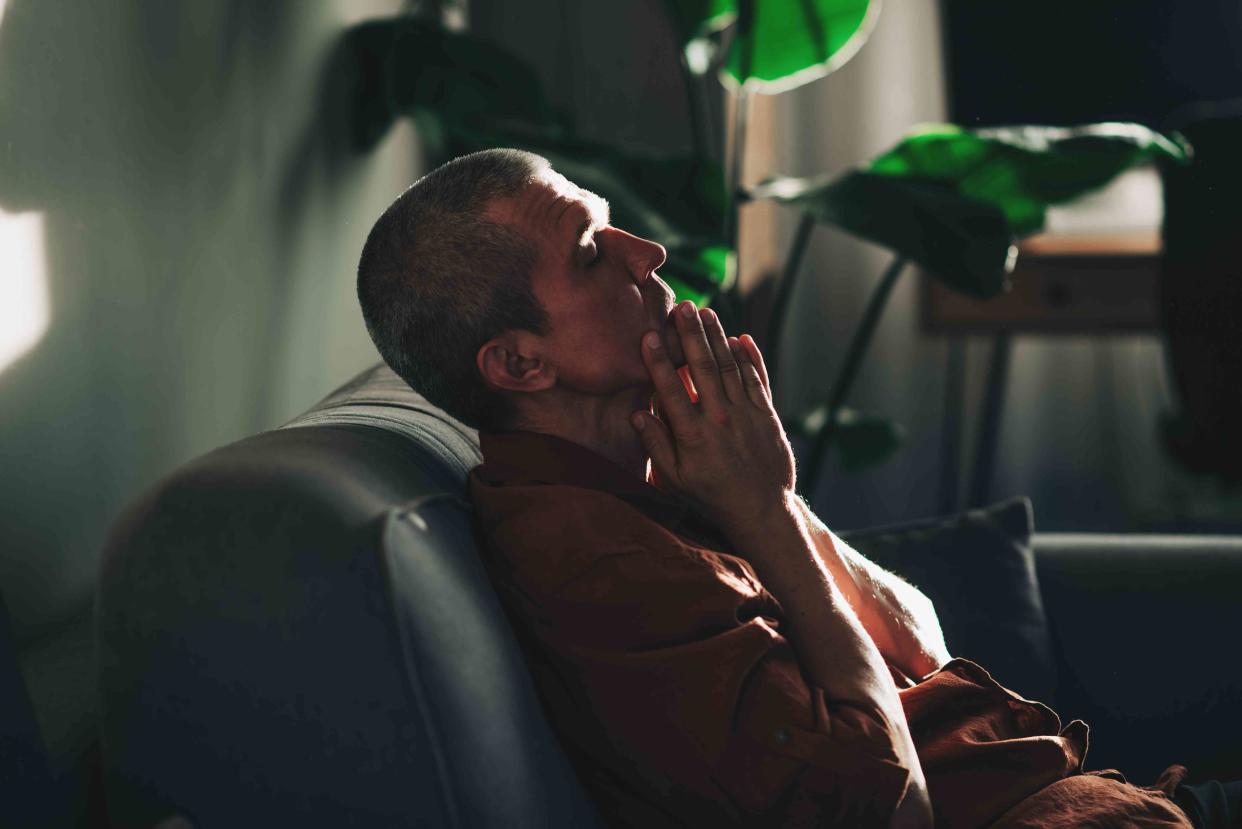Signs and Symptoms of Schizophrenia

Kseniya Ovchinnikova / Getty Images
Medically reviewed by Kathleen Daly, MDMedically reviewed by Kathleen Daly, MD
Schizophrenia is a serious mental health condition that affects less than 1% of people in the United States. This condition affects how you think, feel, and behave.
People with schizophrenia may experience severe symptoms like delusions, hallucinations, and disorganized speech, which can make it difficult to think properly and feel motivated. Unfortunately, the weight schizophrenia has on your life can also make it challenging to maintain relationships and emotional well-being.
Symptoms of schizophrenia can worsen over time, especially if you don't receive treatment. Fortunately, early treatment can lead to a reduction of symptoms and improvement in daily life. That's why recognizing the signs and symptoms of this condition is so important, as it can help you understand when you or a loved one need to seek support from a healthcare provider.
Psychotic Symptoms
People with schizophrenia experience symptoms similar to psychosis. These symptoms can affect the way you think, feel, and act. A person experiencing psychotic symptoms may seem out of touch with reality because their brains process information differently. This can be distressing for family and friends, but especially for the person living with this condition.
Common psychotic symptoms associated with schizophrenia include:
Delusions: Believing things that are not true or based in reality, such as thinking the people on television are talking directly to you and giving you specific instructions
Hallucinations: Having experiences that are not actually happening, such as seeing, hearing, hearing, feeling, or feeling things that are not real
Disorganized thoughts: Thinking in ways that are unusual from the norm, such as not being able to talk about your thoughts or feelings in an understandable way to others
Unusual movements: Behaving in unpredictable ways, such as acting childlike or silly
Negative Symptoms
Negative symptoms refer to a lack of typical behaviors that are considered acceptable within society. Common negative symptoms associated with schizophrenia include:
Lack of motivation: Trouble getting yourself to plan and perform everyday tasks like brushing your teeth or buying food
Social withdrawal: Avoiding seeing others and having trouble connecting in relationships
Flat emotions: Having a dull, monotone voice and not showing facial expressions
Low energy: Resting for very long periods of time and sometimes even not moving or talking altogether (which is known as catatonia)
Cognitive Symptoms
People with schizophrenia often have trouble with their thinking. As a result, you might experience the following challenges with your cognitive abilities:
Divided attention: Trouble paying attention and focusing when taking in new information
Trouble concentrating: Having a hard time following a conversation or being able to listen to others intently
Difficult processing information: Challenges with learning new things and applying information they have already learned
Memory problems: Difficulty remembering important details like appointments or meetings
Symptoms in Children
Schizophrenia is very rare in young children. That's because most people receive a schizophrenia diagnosis between the ages of 16 and 30. While most people with schizophrenia experience symptoms in late adolescence or early adulthood, some children can also develop symptoms in rare occurrences. The warning signs may include trouble thinking or unusual behaviors.
When to Contact a Healthcare Provider
Seeking treatment for schizophrenia as early as possible is critical to your recovery. The World Health Organization estimates that at least one-third of people with schizophrenia are able to achieve complete remission from their symptoms—meaning, they don't experience symptoms at all with the right treatment. People who do not seek treatment often experience worsening symptoms over time.
See your healthcare provider right away if you believe that you or a loved one are having experiences that are not real. This could include seeing things that are not there or hearing voices in your head. They can help diagnose you or your loved one and recommend appropriate treatment options.
Questions to Ask Your Provider
Seeking care for mental health concerns can feel difficult or overwhelming. It's important to understand that there's no shame in experiencing challenges with your emotional well-being. In fact, many people not only experience mental health conditions, but also seek out care for them. That said, if you've decided to meet with your healthcare provider, it can help to come prepared with certain questions. Consider the following:
Is there a way to snap out of hallucinations?
Will my symptoms go away on their own?
What treatment options are currently available if I have schizophrenia?
Is it safe for me to live on my own?
Is it possible to fully recover from schizophrenia?
A Quick Review
Schizophrenia is a serious mental health condition that affects a person’s thoughts, feelings, and behaviors. Common symptoms include hallucinations, delusions, disordered thoughts, and disorganized speech. People with schizophrenia may also experience cognitive problems like low motivation and trouble concentrating. While living with schizophrenia can be challenging, treatments can help improve symptoms and quality of life.
Frequently Asked Questions
What happens if schizophrenia is left untreated?
When left untreated, schizophrenia symptoms usually progress and become worse. Fortunately, many people experience improved symptoms with treatment.
Can you live a happy life with schizophrenia?
It is possible to live a good life with schizophrenia, especially if you seek treatment and follow your treatment plan.
How do you support a loved one with symptoms of schizophrenia?
Loving someone with schizophrenia can be difficult and sometimes scary. However, there are ways you can support their recovery, such as by asking what they need help with, encouraging them to get treatment, emphasizing their strengths, and focusing on your own self-care too.
For more Health.com news, make sure to sign up for our newsletter!
Read the original article on Health.com.

